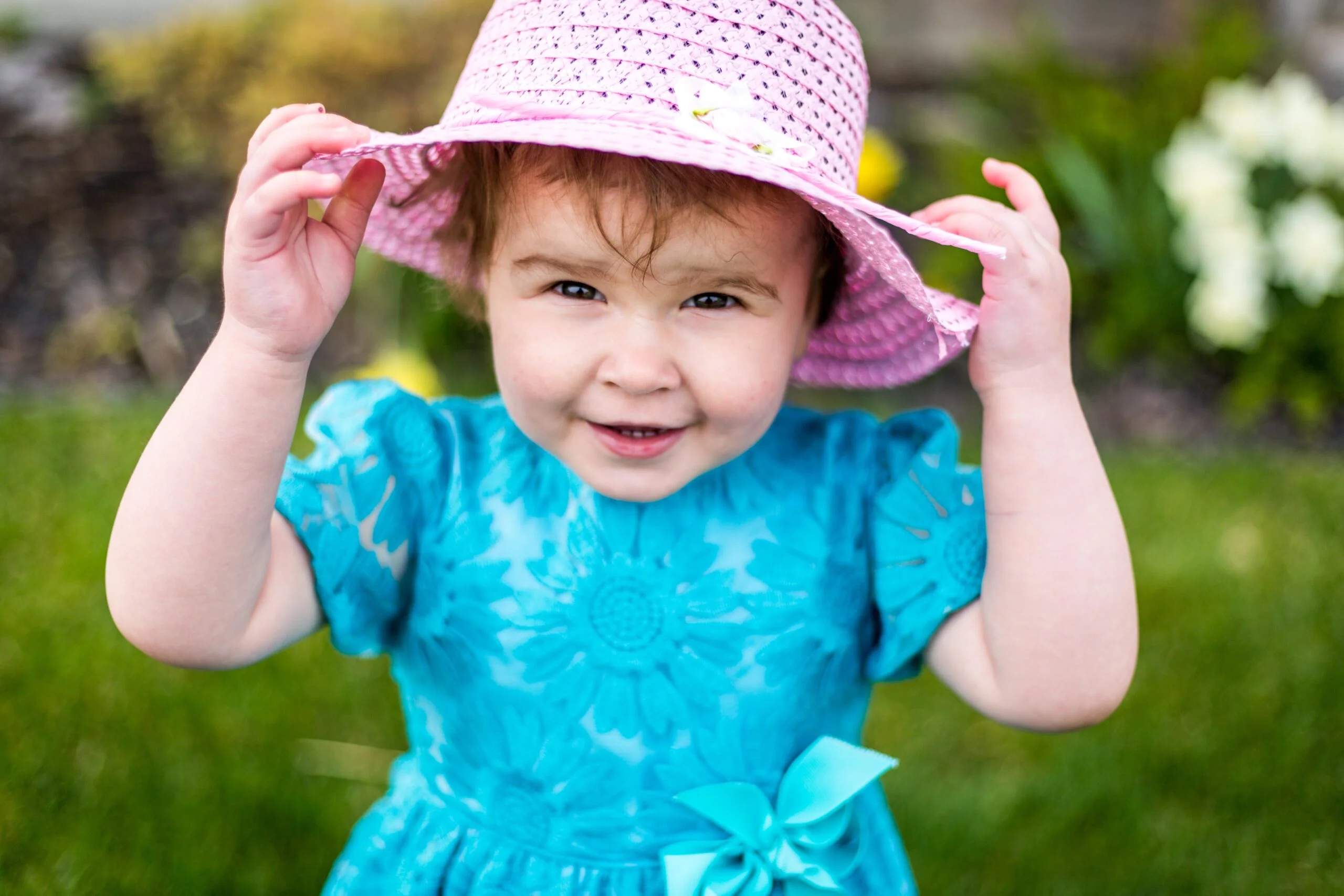“Will my son outgrow this problem?” “Why does my daughter talk like this? My niece is a year younger, and we can understand her when she talks.” “How can I help my child talk more clearly?”
Because the age at which children master speech may vary by as much as two years, you may have questions like these. It is not uncommon for parents to become frustrated and upset when they see their child struggling with something that comes so naturally for many other children. The best support you can offer starts with knowing which speech behaviors are normal at a particular age, which aren’t and how you can help your child learn to speak clearly.
- Why Doesn’t My Child Speak Clearly?
- What Should I Expect?
- Seven Ways To Help
- Speak clearly, naturally and, most of all, correctly
- Monitor your child for ear infections
- Model the correct way to say a word
- Give your child many opportunities to hear troublesome sounds pronounced correctly
- Expect your child to speak clearly
- Prepare your child for new situations
- Educate others about your child’s speech difficulties
- Finding Professional Help
Why Doesn’t My Child Speak Clearly?
If your child rushes indoors with a scraped knee from playing outside, the first question most parents ask is “What happened?” That’s because when we know the cause of a problem, that often helps us find a solution. Many times, however, learning what might be causing a child to have speech problems is not as easy as learning the cause of a child’s scraped knee.
Research has shown that a home environment that provides lots of stimulation and interaction between a parent and child can enhance a young child’s learning. In contrast, if a child doesn’t hear stories read aloud, or the people in his environment don’t acknowledge him or respond when he speaks, the development of speech and language skills may be slowed down.
If a child has a physical or mental impairment— such as a cleft palate or hearing impairment— he may not be able to speak as clearly as his age peers. However, in most cases, a child will have good hearing perception and intellectual ability, and no signs of physical or brain problems, but will not be able to speak as clearly as his age peers. Parents often feel perplexed when told that their child’s difficulties may be due to immature development, rather than to a known cause.
What Should I Expect?
Many children do not learn to say all speech sounds at once. Instead, they develop their ability to say sounds in a predicable sequence. This sequence of sound development begins at birth and may continue through the eighth year of life. For example, children usually learn to say the /b/ sound, as in “ball,” before they can say the /r/ sound, as in “run.”
Because both expecting too much and expecting too little may be harmful, it’s important to know if your child’s ability to say speech sounds is developing and progressing at an acceptable rate.
According to the American Speech-Language-Hearing Association: Generally:
- If your child is 18 months old, you should be able to understand approximately 25 percent of what he says.
- Once your child is 2 years old, you should be able to understand approximately 50 to 75 percent of what he says.
- Even though your 3-year-old child may make sound errors, 75 to 100 percent of what he says should be understandable to family and caregivers.
- Your 4-year-old child’s speech should be understood by people with whom he doesn’t associate regularly.
- Even though your 5 year old may not be able to say all sounds correctly, his speech should be understood by most listeners in all situations.
Seven Ways To Help
Speak clearly, naturally and, most of all, correctly
Speaking clearly and naturally includes establishing eye contact, speaking at an easy-to-understand rate and saying sounds precisely.
Monitor your child for ear infections
If you suspect your child has an ear infection, call your physician immediately. A temporary mild hearing loss from an ear infection can slow a child’s ability to understand language and his ability to say words clearly and correctly. If he does have an ear infection, remember to take him back to the doctor for a follow-up visit to make sure his hearing has returned to normal.
Model the correct way to say a word
If your child says a word incorrectly, in most cases, it is wise not to ask your child to repeat the word. (Of course, if your child is participating in speech therapy, follow the speech/language pathologist’s instructions). Even though many children who incorrectly say sounds have good hearing acuity, they are not able to discriminate between the correct and incorrect production of troublesome sounds.
Therefore, give your child many opportunities to hear the sound modeled (said) correctly. Repeat a troublesome word, and over-enunciate the sound your child is mispronouncing by saying it louder and longer. Continue talking, and make the troublesome word a natural part of your conversation.
Give your child many opportunities to hear troublesome sounds pronounced correctly
This will make it easier for him to hear the difference between the correct and incorrect productions of sounds, and it will also make it easier to say the sound when he is developmentally ready. Try the activities below. As you and your child interact, emphasize the troublesome sound by saying it as often as possible.
If your child is having trouble saying /f/ sounds:
- Talk about things you can do with your feet.
- Make a favorites list (favorite foods, animals, toys).
If your child is having trouble saying /k/ and /g/ sounds:
- Play with cars in a toy garage.
- Talk about the keys on your key chain.
- Talk about what you might plant in a garden.
If your child is having trouble saying /sh/ and /ch/ sounds:
- Talk about different kinds of shoes. Count the shoes in your child’s closet.
- Find five things you can shut.
- Push your child on a swing and talk about other things you can push.
Expect your child to speak clearly
It is important for you to encourage and expect your child to speak the best he can. Be patient, and also tell him how proud you are when he tries his best. If your child has all his wants and needs met without having to say a word, he is, most likely, not getting a lot of opportunities to practice saying speech sounds.
Prepare your child for new situations
Children who must struggle to communicate often feel self-conscious or apprehensive, especially when facing the unknown. Talk to your child about a new situation he may be facing. Rehearse the words he might hear or say in this situation. Ask your librarian to help you find a book about an upcoming situation, such as a trip to the hospital, the birth of a new sibling or the first day at school.
Educate others about your child’s speech difficulties
Of course, you would never allow anyone to tease, laugh or imitate your child’s speech mistakes. Privately, talk to his preschool teacher or babysitter and explain his difficulties. If possible, offer helpful ideas. If he has older siblings, talk to them and enlist their help in modeling good sound productions.
Finding Professional Help
If you have concerns about your child’s development in any area, it is always wise to seek professional help. A speech/language pathologist is trained to assess, treat and help prevent speech, language and voice problems in children (beginning at birth) and adults. You might ask your pediatrician to recommend a speech pathologist in your area, or you could ask a family member or a friend for a referral. To find help close to your home, you can also call you local school district; or go to the American Speech Language Hearing Association (ASHA) and choose “Find a Professional.”
Research has shown that speech problems, if left unchecked, may lead to reading, spelling and writing problems. Removing needless worries about your child’s development, as well as getting help with realistic problems, can make you feel more relaxed and open to enjoying the fun of helping your young child reach his highest potential.
For more information about speech problems or to ask a question, go to 1speechproblems.com.




